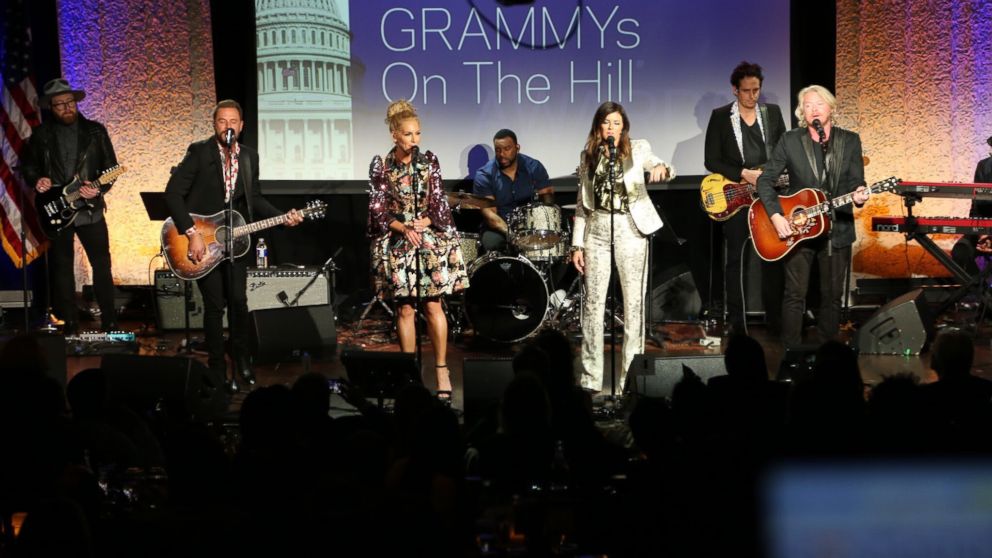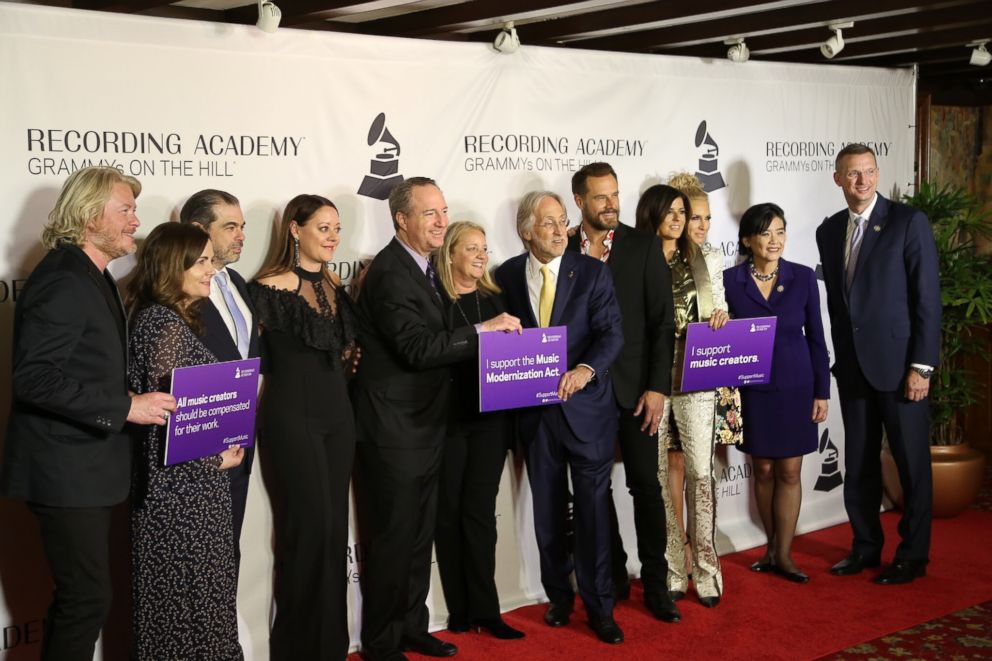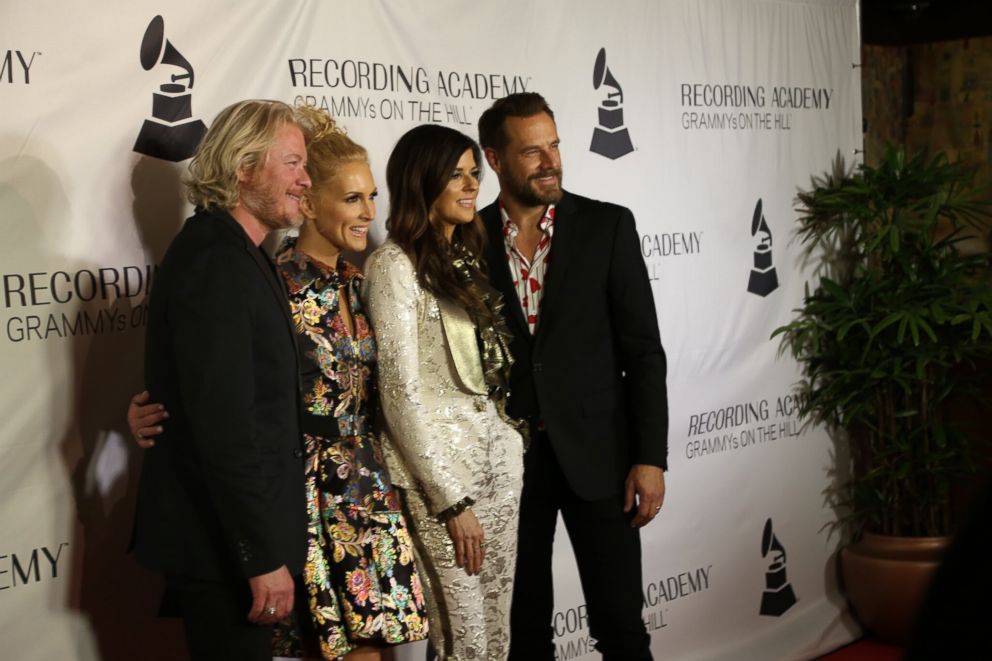GRAMMYs on the Hill honors Little Big Town, calls for change in how artists are compensated
Artists lobbied Congress to pass a bill that would address how they are paid.

Three-time GRAMMY Award winners Little Big Town was humbled to receive an award by the Recording Academy -- but it wasn't for one of their hit songs.
The country group instead was recognized Wednesday at the GRAMMYs on the Hill for its advocacy work.
"Music makes the moments in our lives last forever," Kimberly Schlapman, a member of the group, said.
Artists from different genres came together at Grammys on the Hill -- an annual event organized by the Recording Academy as part of its annual lobbying of lawmakers. Previous honorees include Keith Urban, Zac Brown Band, Alicia Keys and Garth Brooks.
The academy lobbies Congress every year for legislation that affects the music industry.
This year, they celebrated its 20th year in Washington, D.C. Their main priority in 2018 is the Music Modernization Act, which gives free market compensation to artists whose work is on streaming services like Spotify and Pandora.
Artists headed to Capitol Hill Thursday to advocate for the passage of the bill. The legislation was rolled out last week and has already passed the House Judiciary Committee with bipartisan support.
Two of the of the bill's main supporters are Rep. Judy Chu (D-Calif.) and Rep. Doug Collins (R-Georgia), were also honored by the Recording Academy.
Rep. Collins introduced the first installment of the Music Modernization Act last December and has been working on the issue for five years. He celebrated how more than 50 organizations came together and supported the legislation.
"When we came together we got something that fits the ecosystem, fits where we're going and we're excited about it," he told ABC News. "In this town, where so many people say nothing can get done, this is something that can get done."

Chu, meanwhile, said she was inspired by artists whose work broke into the mainstream -- yet hadn't been fairly compensated for their hit songs.
"I remember hearing the poignant stories of songwriters who had big hits but just got a mere few dollars for all their work on digital platforms," Chu, a congressional honoree and founder of the Congressional Creative Caucus, told ABC News. "I met all kinds of older artists who had big hits but didn't get any compensation on digital platforms for their pre-1972 work.
"And I said we have to change the scenario," she said. "Now we will finally have fairness."
Rodney Jerkins, a record producer who goes by the stage name Darkchild, told ABC News that royalties from songs sometimes don't even help make ends meet.
"That check from that big song that everyone was streaming is so small that it can't even pay a rent bill," he said.
Not everyone is in favor of the bill, however. Sirius XM said in a statement that the legislation is "anti-competitive" and "harmful to the public interest and consumers."
"Proponents of this latest version of the Music Modernization Act will likely characterize it is 'consensus,' but that is simply untrue," the statement read. "There were a number of unique and important perspectives which were specifically excluded from discussions and we look forward to working with Congress to make sure those voices are heard. In its current form, this bill is anti-competitive and is harmful to the public interest and consumers."

But Peter Asher, a GRAMMY Award-winning producer, told ABC News the law hasn't caught up to technology.
"There are a lot of areas in which the legal aspects of songwriting and record production and being an artist have not kept up with the changing technology and the changing reality of it," he said. "Basically we're just trying to straighten it out and make it fair to everybody."
Erika Ender, a GRAMMY Award-winning writer who co-wrote the hit "Despacito," agreed.
"The world keeps evolving so much and so fast that the law is still back there -- so we need an update," she said. "We need everything that has been going on with the digital world ... to be in that law. So that way we can be protected and compensated as we deserve."
Beyond the politics, the performances moved the lawmakers, including Michael McCaul (R- Texas), Leader Nancy Pelosi (D-Cali) and Senator Doug Jones (D-Alabama), who all got on stage with Little Big Town. Among the acts were Ender, who performed "Despacito," and the Little Big Town, which performed "Better Man" and "Boondocks."
Karen Fairchild, a member of Little Big Town, said she hopes the music will move the lawmakers -- not just to the rhythm, but to push the bill through Congress.
"It's easy to take care of people who gave anthems to your lives," she said.




